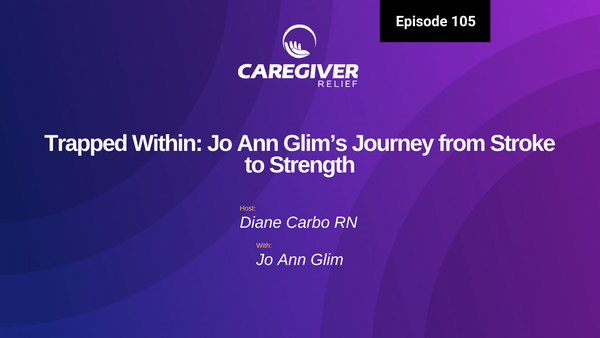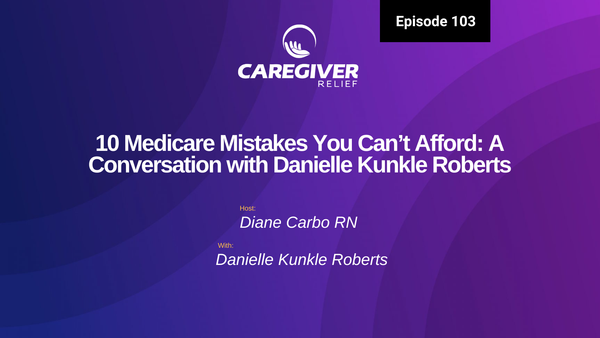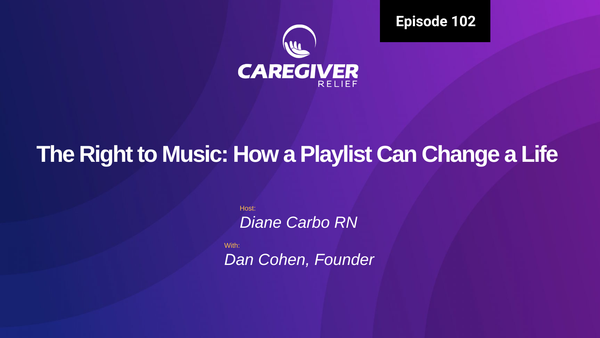Can Sleep Deprivation Cause Hallucinations?
Prolonged lack of sleep can lead to hallucinations as the brain struggles to function properly. Severe sleep deprivation disrupts perception, causing visual, auditory, or sensory hallucinations. Prioritizing rest is essential for mental health and clarity.

Sleep deprivation can be a serious issue. It affects our ability to think and act in our day-to-day lives, impairs our cognitive functions, diminishes our creativity, and generally leads to a feeling of exhaustion. But did you know that sleep deprivation can also cause hallucinations? A good night's sleep is crucial for mental and physical health, and lack of it can lead to serious issues such as hallucinations. In this guide, we will explore the link between sleep deprivation and hallucinations, examine how it can affect mental health, and look at treatments and preventative measures to help you manage the issue.
By understanding the relationship between sleep deprivation and hallucinations, we can gain insight into how they both interact with our mental health and wellbeing, providing us with useful strategies to ensure we maintain good psychological health. The information provided here is intended to provide an overview of the current scientific research into the area, so you can make more informed decisions about how to address any sleep deprivation related issues.
Understanding the Effects of Chronic Sleep Deprivation on Hallucinations
When it comes to our mental health, sleep plays a large role in how we feel and how we think. Severe sleep deprivation can lead to a range of issues, both physical and mental. This guide will explore the link between sleep deprivation and hallucinations, focusing on what hallucinations are, the potential causes of them, treatments, and prevention.
Hallucinations are sensory experiences that appear real to the person experiencing them, but these experiences do not have any actual reality. They can vary in intensity and severity, and can manifest in many forms, including visual, auditory, olfactory, tactile, and even emotional hallucinations.
What are Hallucinations?
Hallucinations are sensory experiences that often feel real, despite not being rooted in reality. Hallucinations can happen in any sense: sight, smell, sound, touch, and taste, as well as a sense of movement or balance.
They can manifest in many different ways. For example, you may see something that isn’t there, hear voices that no one else can hear, or even feel like insects or animals are crawling on your skin. These visions can be extremely vivid and convincing.
These episodes can last from seconds to hours. They can also be associated with various medical conditions, such as schizophrenia or dementia. But they can also be caused by stress, trauma, or drugs. Sustained sleep deprivation can lead to symptoms resembling acute psychosis, characterized by hallucinations and disorganized thoughts.
The experience of hallucinations is extremely individualized. While some people may find them terrifying, others may find it pleasurable. Though it’s important to remember that hallucinations are usually not dangerous.
What are Hallucinations?
Hallucinations can be defined as an experience of seeing, hearing or feeling something that is not actually there. These false perceptions can take different forms, such as visual, auditory, olfactory (smell), tactile (touch) or even gustatory (taste). They can range from simple sensations, such as a smell, to complex visuals and voices.
Visual hallucinations are the most common type and appear as moving or still images. Auditory hallucinations generally involve hearing voices or sounds, like that of a ringing phone or music. Olfactory hallucinations are smells that do not exist and may be described as pleasant or unpleasant. Tactile hallucinations typically involve physical sensations on the skin, such as insects crawling or a feeling of electricity. Lastly, gustatory hallucinations involve tasting substances that do not exist.
Hallucinations can be experienced as:
- Auditory: Hearing things that are not actually present
- Visual: Seeing things that are not actually present
- Tactile: Feeling things that are not actually present
- Olfactory: Smelling things that are not actually present
- Gustatory: Tasting things that are not actually present
Hallucinations are a symptom of a number of conditions including psychosis, epilepsy, dementia, bipolar disorder, and sleep deprivation.
Causes of Sleep Deprivation
Sleep deprivation can stem from a variety of sources, each impacting our ability to get a good night’s sleep. Lifestyle habits, medical conditions, and environmental factors all play a role in how well we rest. For instance, irregular work schedules or shift work can throw off your body’s internal clock, making it difficult to maintain a consistent sleep pattern. Traveling across time zones can also disrupt your sleep cycle, leading to jet lag and sleep deprivation.
Caring for a new baby or a family member can significantly reduce the amount of sleep you get, as can certain medical conditions or medications that interfere with sleep. Consuming stimulants like caffeine or nicotine, especially in the hours leading up to bedtime, can make it harder to fall asleep. Engaging in stimulating activities, such as watching TV or using electronic devices, can also keep your mind active and delay sleep.
Environmental factors like noise, light, or an uncomfortable sleeping environment can further disrupt your ability to get restful sleep. Additionally, sleep disorders such as insomnia, sleep apnea, and restless legs syndrome can contribute to chronic sleep deprivation, making it even more challenging to achieve the restorative sleep your body needs.
Exploring the Link Between Sleep Deprivation & Hallucinations
Hallucinations are a phenomenon that can be caused by various mental health conditions, but researchers have been exploring if sleep deprivation can cause them as well. Sleep deprivation is defined as not meeting the minimum recommended hours of sleep for one’s age group, and has been established as an important factor in inducing a number of psychiatric disorders. In recent years, the scientific community has put forth much effort into understanding the connection between sleep deprivation and the emergence of hallucinations.
Total sleep deprivation, where an individual experiences no sleep for multiple consecutive nights, can trigger severe psychological effects such as hallucinations.
It has been suggested that prolonged periods of sleeplessness or poor quality sleep can increase mental stress levels, which can then intensify the symptoms associated with a number of psychological disorders, including suicidal thoughts, depression, anxiety, and paranoia. It has also been theorized that when faced with psychological stressors, the body and mind may respond by triggering a variety of auditory, visual, olfactory and tactile illusions. This may explain why people who suffer from sleep deprivation are more likely to experience hallucinations than those who get the recommended amount of sleep.
The latest research shows that sleep deprivation can alter perception, leading to changes in brain activity patterns and a heightened state of arousal. This in turn causes a disruption in the brain’s ability to distinguish between reality and imagination and could lead to the emergence of false perceptions. In addition, upon further investigation, it was found that prolonged sleep deprivation results in an elevation of dopamine levels, which can also contribute to hallucinations.
Sleep Disorders and Hallucinations
Sleep disorders can significantly increase the risk of experiencing hallucinations, particularly in individuals who suffer from chronic sleep deprivation. Insomnia, characterized by difficulty falling or staying asleep, can lead to hallucinations in some individuals due to the prolonged lack of rest. Sleep apnea, a condition where a person stops breathing for short periods during sleep, can cause hallucinations as the brain struggles with intermittent oxygen deprivation.
Narcolepsy, a neurological disorder that affects the brain’s ability to regulate sleep-wake cycles, can also lead to hallucinations and other psychotic symptoms. People with narcolepsy may experience vivid dream-like hallucinations as they transition between sleep and wakefulness. Restless legs syndrome, marked by an uncontrollable urge to move the legs, can disrupt sleep and lead to sleep deprivation, which in turn can cause hallucinations.
These sleep disorders not only disrupt normal sleep patterns but also contribute to a heightened state of arousal and altered brain activity, making it difficult for the brain to distinguish between reality and imagination.
Exploring the Recent Trends in Research Objectives and Findings
It is recognized that sleep deprivation can have severe effects on our mental health, and as research has emerged, a potential link between sleep deprivation and hallucinations is slowly being defined. In recent years, research has sought to more thoroughly explore this connection and understand it better.
One of the most important findings from recent research in this area is that sleep deprivation can increase the risk of experiencing certain types of hallucinations. It was discovered that those with higher levels of sleep deprivation were more likely to experience externalized hallucinations such as seeing a person or object that isn't physically present. On the other hand, those who had adequate amounts of sleep or had only mild levels of sleep deprivation were more likely to experience internalized hallucinations such as hearing voices in their head.
Research has also suggested that sleep deprivation can contribute to a decrease in the mental capacity to distinguish between reality and false perceptions. Over time, this can lead to increased susceptibility to both types of hallucinations caused by sleep deprivation.
The Role of Sleep in Psychosis Development
Sleep plays a crucial role in maintaining mental health, and disturbances in sleep can contribute to the development of psychosis. Research has shown that sleep disturbances can affect the regulation of neurotransmitters such as dopamine and serotonin, which are involved in the development of psychotic symptoms. When these neurotransmitters are out of balance, it can lead to hallucinations and delusions.
Impaired cognitive processing is another consequence of sleep disturbances. Lack of sleep can affect attention, memory, and decision-making, all of which are critical for distinguishing between reality and false perceptions. This cognitive impairment can make individuals more susceptible to psychotic symptoms.
Additionally, sleep disturbances can increase stress and anxiety levels, which are known to exacerbate psychotic symptoms. The combination of disrupted neurotransmitter regulation, impaired cognitive processing, and heightened stress creates a perfect storm for the development of psychosis.
How Sleep Deprivation Affects Mental Health
Sleep deprivation can have a severe effect on one’s mental health, contributing to various mental health problems. Without getting enough sleep, it can be difficult to concentrate, make decisions and manage stress. It has been linked to depression, anxiety, and other issues. When our brains are deprived of the restful sleep they need, our ability to cope with emotional and mental stresses is hindered.
Research has shown that those who are regularly sleep-deprived experience poor physical and psychological health. This includes an impaired ability to remember things, a decrease in pain tolerance, and an increased risk of developing mental disorders such as depression and anxiety. Additionally, lack of sleep can cause mood swings, irritability, and a lack of motivation. Sleep deprivation can exacerbate pre-existing mental illness, increasing the risk of negative symptoms or relapses.
Not getting enough rest can also lead to poor decision making. Fatigue can distort judgement, making it more difficult to properly assess the risks involved in certain situations. Long-term sleep deprivation can also lead to impaired cognitive abilities, such as memory and reasoning.
Untreated sleep deprivation can have serious consequences. Not getting enough rest can put individuals at an increased risk of developing other illnesses, such as diabetes, high blood pressure, and heart disease. Mental health can also suffer, with increased risk of depression, anxiety, bipolar disorder, and other psychological issues.
Therefore, it is important to take steps to ensure adequate sleep and reduce the chances of sleep deprivation having an adverse effect on mental health. Lifestyle changes, such as practicing good sleeping habits, exercising regularly, reducing stress, and eating a balanced diet, can all help to improve sleep quality.
Treating Hallucinations Caused by Sleep Deprivation
If you are experiencing hallucinations caused by sleep deprivation, it is essential to seek treatment as soon as possible. There are a variety of treatments available for those affected by sleep deprivation related hallucinations, designed to reduce the severity of symptoms and encourage more restful sleep. Other sleep disorders, such as insomnia and sleep apnea, can also contribute to hallucinations and should be addressed in treatment plans.
Medications can be prescribed by your doctor to help you relax and achieve a better night’s sleep. These may include sedatives, anti-anxiety drugs or sleep aids. Your doctor will also likely recommend cognitive therapy or counseling to help you understand your triggers and learn how to manage them.
In addition to medical treatments, there are lifestyle changes that can be made to help improve your sleep quality and reduce the frequency of your hallucinations. It is important to ensure that you have a regular sleep schedule, consistently going to bed and waking up at the same time each day.
By creating an environment conducive to relaxation, you can make sure that your time in bed is devoted to sleeping. Make sure that the temperature of your bedroom is comfortable, and that any outside noise that could disrupt your sleep is minimized. Avoiding caffeine and other stimulating substances after dinner can also help you achieve a restful sleep.
Finally, engaging in calming activities before turning in for the night, such as reading and yoga, can help prepare your body and mind for a good night’s sleep. Developing healthy habits around sleep can help you improve your quality of life and reduce the prevalence of sleep deprivation related hallucinations.
Making Lifestyle Changes to Improve Sleep Quality
Improving your lifestyle can be a great way to address sleep problems and ensure better sleep quality. Good sleep hygiene involves ensuring you have the right environment, routine, habits, and diet to get the best out of your sleep. This will help you stay rested and energized during the day, preventing the onset of stressful sleep deprivation related conditions such as hallucinations.
The following steps can help you achieve healthier sleep:
- Create a regular sleep schedule and stick to it: Go to bed and wake up around the same time every day, even on weekends and days off.
- Avoid caffeine after 2 pm: Caffeine can interfere with your natural sleep cycle, so avoid drinking coffee, tea, or energy drinks late in the day.
- Exercise regularly: Regular exercise can help regulate your body’s sleep cycle, making it easier to fall asleep. Try to do at least 30 minutes of exercise a day, four to five days a week.
- Cut down on fluids before bed: Reduce the amount of liquids you drink before bed to reduce disruptions to bathroom breaks throughout the night.
- Develop soothing pre-bedtime rituals: Before bed, do something calming like reading, listening to music, or taking a warm bath. This will help your body relax and prepare for sleep.
- Reduce stress levels: Stress can make it harder to fall asleep and stay asleep. To reduce stress, practice relaxation activities like yoga or meditation.
- Optimize your sleeping environment: Make sure your bedroom is dark, quiet, and cool. Invest in blackout curtains or wear eye masks if you need to block out light.
Making small changes to your lifestyle can make a significant difference in improving your sleep quality. By implementing these simple steps, you can enjoy a restful, refreshing night’s sleep.
Hallucinations as a result of sleep deprivation can be prevented through regular and healthy lifestyle habits. Sleeping for an adequate amount of time each night is key to preventing any form of hallucination. Most adults should aim to get between seven to nine hours of sleep each night.
It is also important to be conscious of the quality of sleep. Stress, anxiety and other mental health issues can cause difficulty in sleeping, so it is essential to practice relaxation methods, such as reading, yoga and meditation to help achieve a deep sleep.
In addition to managing mental health issues, a healthy diet and exercise can also prevent sleep deprivation related hallucinations. Eating healthy foods, such as whole grains, fruits and vegetables, and exercising regularly can help to improve energy and metabolism, which can lead to better sleep.
Finally, it is also important to limit or avoid activities that can disturb your sleep, such as drinking caffeinated beverages and using electronic devices like phones and laptops before bed.
Eating healthy and getting regular exercise are essential for preventing sleep deprivation from occurring and causing hallucinations. Making even small changes to your diet and fitness routine can have a positive impact on your overall wellbeing, allowing you to sleep peacefully throughout the night.
Ensuring that you are consuming a balanced diet with all the necessary nutrients is important for maintaining energy levels and improving your quality of sleep. Eating a diet rich in fruits and vegetables, lean proteins, whole grains, and healthy fats can help you sleep better and provide your body with the essential nutrients it needs. Additionally, limiting your consumption of processed foods, caffeine, and sugar can help reduce feelings of restlessness and make it easier for you to drift off at night.
In addition to eating healthy, exercising regularly can help improve your overall mental health and sleep quality. Aim to get at least 30 minutes of physical activity most days of the week. This can include anything from walking, jogging, or weight training to swimming, yoga, or dancing. Exercise can help reduce stress levels and promote relaxation, which can also help improve your overall sleep quality and prevent sleep deprivation related hallucinations.
Sleep deprivation can lead to a host of mental health issues, including hallucinations. It is therefore essential to understand the effects of sleep deprivation on one’s mental wellbeing in order to maintain proper health. In this guide, we have explored the research that has been conducted to explore the link between sleep deprivation and hallucinations, as well as practical steps we can take to prevent and treat any such issues.
By understanding the implications of sleep deprivation and implementing lifestyle changes that improve sleep quality - such as getting enough exercise, eating healthy meals, and limiting exposure to blue light at night - we may be able to help reduce the risk of developing sleep deprivation related hallucinations.
It is important to stay informed about the potential negative consequences of sleep deprivation so that we can take proactive steps to promote healthy living and avoid future mental health issues. By following the advice provided in this guide, hopefully we can all take better care of our sleep and ensure a healthy and happy life.
Conclusion
Sleep deprivation and sleep disorders can have a profound impact on mental health, leading to the development of hallucinations and other psychotic symptoms. It is essential to prioritize sleep and address any underlying sleep disorders to maintain good physical and mental health. By understanding the causes of sleep deprivation and the role of sleep in psychosis development, individuals can take proactive steps to prevent sleep disturbances and reduce the risk of developing psychotic symptoms.
Implementing lifestyle changes such as maintaining a regular sleep schedule, creating a conducive sleep environment, and managing stress can significantly improve sleep quality. By taking these steps, we can protect our mental health and ensure a healthier, more balanced life.
You might also like this article:










